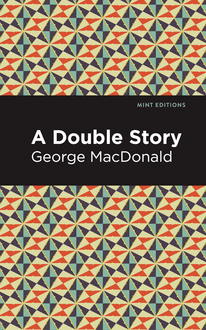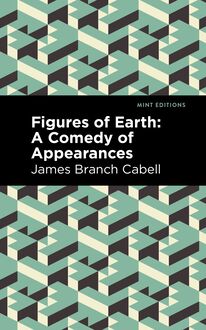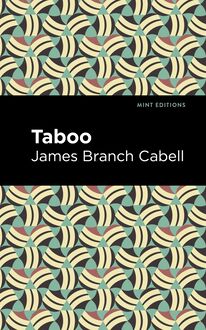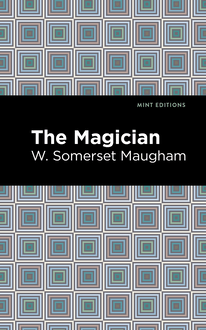-
 Univers
Univers
-
 Ebooks
Ebooks
-
 Livres audio
Livres audio
-
 Presse
Presse
-
 Podcasts
Podcasts
-
 BD
BD
-
 Documents
Documents
-
- Cours
- Révisions
- Ressources pédagogiques
- Sciences de l’éducation
- Manuels scolaires
- Langues
- Travaux de classe
- Annales de BEP
- Etudes supérieures
- Maternelle et primaire
- Fiches de lecture
- Orientation scolaire
- Méthodologie
- Corrigés de devoir
- Annales d’examens et concours
- Annales du bac
- Annales du brevet
- Rapports de stage
La lecture à portée de main
Vous pourrez modifier la taille du texte de cet ouvrage
Découvre YouScribe en t'inscrivant gratuitement
Je m'inscrisDécouvre YouScribe en t'inscrivant gratuitement
Je m'inscrisEn savoir plus
Vous pourrez modifier la taille du texte de cet ouvrage
En savoir plus

Description
The Moon Pool (1918) is a novel by A. Merritt. Originally published as a pair of short stories in the Argosy All-Story Weekly, Merritt’s novel is an influential work in the tradition of lost world fantasy, a subgenre pioneered by Edgar Rice Burroughs and Arthur Conan Doyle. Thought to have influenced H. P. Lovecraft’s “The Call of Cthulhu,” The Moon Pool is widely regarded as Merritt’s finest work. “Now the Thing was close to the end of the white path; close up to the barrier of darkness still between the ship and the sparkling head of the moon stream. Now it beat up against that barrier as a bird against the bars of its cage. It whirled with shimmering plumes, with swirls of lacy light, with spirals of living vapour.” While on a seafaring expedition, Dr. Goodwin, a brilliant scientist, first makes contact with a being known to some as the Dweller, and to others as the Shining One. Created by a lost race residing in the Earth’s core, the Dweller soon broke free from its masters and took on a capacity for evil. Now, all that remains of the once vibrant and advanced underground civilization are the three Silent Ones, wise and immortal beings whose duty—if they can fulfill it—is to destroy the Dweller once and for all. Joined by pilot Larry O’Keefe, Dr. Goodwin voyages underground to learn more about the creature he first saw by the light of the moon. With a beautifully designed cover and professionally typeset manuscript, this edition of A. Merritt’s The Moon Pool is a classic of American fantasy fiction reimagined for modern readers.
Sujets
Informations
| Publié par | Mint Editions |
| Date de parution | 16 novembre 2021 |
| Nombre de lectures | 1 |
| EAN13 | 9781513292786 |
| Langue | English |
| Poids de l'ouvrage | 1 Mo |
Informations légales : prix de location à la page 0,0500€. Cette information est donnée uniquement à titre indicatif conformément à la législation en vigueur.
Extrait
The Moon Pool
A. Merritt
The Moon Pool was first published in 1918.
This edition published by Mint Editions 2021.
ISBN 9781513289939 | E-ISBN 9781513292786
Published by Mint Editions®
minteditionbooks .com
Publishing Director: Jennifer Newens
Design & Production: Rachel Lopez Metzger
Project Manager: Micaela Clark
Typesetting: Westchester Publishing Services
C ONTENTS I. T HE T HING ON THE M OON P ATH II. “D EAD ! A LL D EAD !” III. T HE M OON R OCK IV. T HE F IRST V ANISHINGS V. I NTO THE M OON P OOL VI. “T HE S HINING D EVIL T OOK T HEM !” VII. L ARRY O’K EEFE VIII. O LAF ’ S S TORY IX. A L OST P AGE OF E ARTH X. T HE M OON P OOL XI. T HE F LAME -T IPPED S HADOWS XII. T HE E ND OF THE J OURNEY XIII. Y OLARA , P RIESTESS OF THE S HINING O NE XIV. T HE J USTICE OF L ORA XV. T HE A NGRY , W HISPERING G LOBE XVI. Y OLARA OF M URIA VS . THE O’K EEFE XVII. T HE L EPRECHAUN XVIII. T HE A MPHITHEATRE OF J ET XIX. T HE M ADNESS OF O LAF XX. T HE T EMPTING OF L ARRY XXI. L ARRY ’ S D EFIANCE XXII. T HE C ASTING OF THE S HADOW XXIII. D RAGON W ORM AND M OSS D EATH XXIV. T HE C RIMSON S EA XXV. T HE T HREE S ILENT O NES XXVI. T HE W OOING OF L AKLA XXVII. T HE C OMING OF Y OLARA XXVIII. I N THE L AIR OF THE D WELLER XXIX. T HE S HAPING OF THE S HINING O NE XXX. T HE B UILDING OF THE M OON P OOL XXXI. L ARRY AND THE F ROG -M EN XXXII. “Y OUR L OVE ; Y OUR L IVES ; Y OUR S OULS !” XXXIII. T HE M EETING OF T ITANS XXXIV. T HE C OMING OF THE S HINING O NE XXXV. “L ARRY —F AREWELL !”
I
T HE T HING ON THE M OON P ATH
F or two months I had been on the d’Entrecasteaux Islands gathering data for the concluding chapters of my book upon the flora of the volcanic islands of the South Pacific. The day before I had reached Port Moresby and had seen my specimens safely stored on board the Southern Queen. As I sat on the upper deck I thought, with homesick mind, of the long leagues between me and Melbourne, and the longer ones between Melbourne and New York.
It was one of Papua’s yellow mornings when she shows herself in her sombrest, most baleful mood. The sky was smouldering ochre. Over the island brooded a spirit sullen, alien, implacable, filled with the threat of latent, malefic forces waiting to be unleashed. It seemed an emanation out of the untamed, sinister heart of Papua herself—sinister even when she smiles. And now and then, on the wind, came a breath from virgin jungles, laden with unfamiliar odours, mysterious and menacing.
It is on such mornings that Papua whispers to you of her immemorial ancientness and of her power. And, as every white man must, I fought against her spell. While I struggled I saw a tall figure striding down the pier; a Kapa-Kapa boy followed swinging a new valise. There was something familiar about the tall man. As he reached the gangplank he looked up straight into my eyes, stared for a moment, then waved his hand.
And now I knew him. It was Dr. David Throckmartin—“Throck” he was to me always, one of my oldest friends and, as well, a mind of the first water whose power and achievements were for me a constant inspiration as they were, I know, for scores other.
Coincidentally with my recognition came a shock of surprise, definitely—unpleasant. It was Throckmartin—but about him was something disturbingly unlike the man I had known long so well and to whom and to whose little party I had bidden farewell less than a month before I myself had sailed for these seas. He had married only a few weeks before, Edith, the daughter of Professor William Frazier, younger by at least a decade than he but at one with him in his ideals and as much in love, if it were possible, as Throckmartin. By virtue of her father’s training a wonderful assistant, by virtue of her own sweet, sound heart a—I use the word in its olden sense—lover. With his equally youthful associate Dr. Charles Stanton and a Swedish woman, Thora Halversen, who had been Edith Throckmartin’s nurse from babyhood, they had set forth for the Nan-Matal, that extraordinary group of island ruins clustered along the eastern shore of Ponape in the Carolines.
I knew that he had planned to spend at least a year among these ruins, not only of Ponape but of Lele—twin centres of a colossal riddle of humanity, a weird flower of civilization that blossomed ages before the seeds of Egypt were sown; of whose arts we know little enough and of whose science nothing. He had carried with him unusually complete equipment for the work he had expected to do and which, he hoped, would be his monument.
What then had brought Throckmartin to Port Moresby, and what was that change I had sensed in him?
Hurrying down to the lower deck I found him with the purser. As I spoke he turned, thrust out to me an eager hand—and then I saw what was that difference that had so moved me. He knew, of course by my silence and involuntary shrinking the shock my closer look had given me. His eyes filled; he turned brusquely from the purser, hesitated—then hurried off to his stateroom.
“’E looks rather queer—eh?” said the purser. “Know ’im well, sir? Seems to ’ave given you quite a start.”
I made some reply and went slowly up to my chair. There I sat, composed my mind and tried to define what it was that had shaken me so. Now it came to me. The old Throckmartin was on the eve of his venture just turned forty, lithe, erect, muscular; his controlling expression one of enthusiasm, of intellectual keenness, of—what shall I say—expectant search. His always questioning brain had stamped its vigor upon his face.
But the Throckmartin I had seen below was one who had borne some scaring shock of mingled rapture and horror; some soul cataclysm that in its climax had remoulded, deep from within, his face, setting on it seal of wedded ecstasy and despair; as though indeed these two had come to him hand in hand, taken possession of him and departing left behind, ineradicably, their linked shadows!
Yes—it was that which appalled. For how could rapture and horror, Heaven and Hell mix, clasp hands—kiss?
Yet these were what in closest embrace lay on Throckmartin’s face!
Deep in thought, subconsciously with relief, I watched the shore line sink behind; welcomed the touch of the wind of the free seas. I had hoped, and within the hope was an inexplicable shrinking that I would meet Throckmartin at lunch. He did not come down, and I was sensible of deliverance within my disappointment. All that afternoon I lounged about uneasily but still he kept to his cabin—and within me was no strength to summon him. Nor did he appear at dinner.
Dusk and night fell swiftly. I was warm and went back to my deck-chair. The Southern Queen was rolling to a disquieting swell and I had the place to myself.
Over the heavens was a canopy of cloud, glowing faintly and testifying to the moon riding behind it. There was much phosphorescence. Fitfully before the ship and at her sides arose those stranger little swirls of mist that swirl up from the Southern Ocean like breath of sea monsters, whirl for an instant and disappear.
Suddenly the deck door opened and through it came Throckmartin. He paused uncertainly, looked up at the sky with a curiously eager, intent gaze, hesitated, then closed the door behind him.
“Throck,” I called. “Come! It’s Goodwin.”
He made his way to me.
“Throck,” I said, wasting no time in preliminaries. “What’s wrong? Can I help you?”
I felt his body grow tense.
“I’m going to Melbourne, Goodwin,” he answered. “I need a few things—need them urgently. And more men—white men—”
He stopped abruptly; rose from his chair, gazed intently toward the north. I followed his gaze. Far, far away the moon had broken through the clouds. Almost on the horizon, you could see the faint luminescence of it upon the smooth sea. The distant patch of light quivered and shook. The clouds thickened again and it was gone. The ship raced on southward, swiftly.
Throckmartin dropped into his chair. He lighted a cigarette with a hand that trembled; then turned to me with abrupt resolution.
“Goodwin,” he said. “I do need help. If ever man needed it, I do. Goodwin—can you imagine yourself in another world, alien, unfamiliar, a world of terror, whose unknown joy is its greatest terror of all; you all alone there, a stranger! As such a man would need help, so I need—”
He paused abruptly and arose; the cigarette dropped from his fingers. The moon had again broken through the clouds, and this time much nearer. Not a mile away was the patch of light that it threw upon the waves. Back of it, to the rim of the sea was a lane of moonlight; a gigantic gleaming serpent racing over the edge of the world straight and surely toward the ship.
Throckmartin stiffened to it as a pointer does to a hidden covey. To me from him pulsed a thrill of horror—but horror tinged with an unfamiliar, an infernal joy. It came to me and passed away—leaving me trembling with its shock of bitter sweet.
He bent forward, all his soul in his eyes. The moon path swept closer, closer still. It was now less than half a mile away. From it the ship fled—almost as though pursued. Down upon it, swift and straight, a radiant torrent cleaving the waves, raced the moon stream.
“Good God!” breathed Throckmartin, and if ever the words were a prayer and an invocation they were.
And then, for the first time—I saw— it !
The moon path stretched to the horizon and was bordered by darkness. It was as though the clouds above had been parted to form a lane-drawn aside like curtains or as the waters of the Red Sea were held back to let the hosts of Israel through. On each side of the stream was the black shadow cast by the folds of the high canopies And straight as a road between the opaque walls gleamed, shimmered, and danced the shining, racing, rapids of the moonlight.
Far, it seemed immeasurably far, along this stream of silver fire I sensed, rather than saw, something coming. It drew first into sight as a deeper glow within the light. On and
-
 Univers
Univers
-
 Ebooks
Ebooks
-
 Livres audio
Livres audio
-
 Presse
Presse
-
 Podcasts
Podcasts
-
 BD
BD
-
 Documents
Documents
-
Jeunesse
-
Littérature
-
Ressources professionnelles
-
Santé et bien-être
-
Savoirs
-
Education
-
Loisirs et hobbies
-
Art, musique et cinéma
-
Actualité et débat de société
-
Jeunesse
-
Littérature
-
Ressources professionnelles
-
Santé et bien-être
-
Savoirs
-
Education
-
Loisirs et hobbies
-
Art, musique et cinéma
-
Actualité et débat de société
-
Actualités
-
Lifestyle
-
Presse jeunesse
-
Presse professionnelle
-
Pratique
-
Presse sportive
-
Presse internationale
-
Culture & Médias
-
Action et Aventures
-
Science-fiction et Fantasy
-
Société
-
Jeunesse
-
Littérature
-
Ressources professionnelles
-
Santé et bien-être
-
Savoirs
-
Education
-
Loisirs et hobbies
-
Art, musique et cinéma
-
Actualité et débat de société
- Cours
- Révisions
- Ressources pédagogiques
- Sciences de l’éducation
- Manuels scolaires
- Langues
- Travaux de classe
- Annales de BEP
- Etudes supérieures
- Maternelle et primaire
- Fiches de lecture
- Orientation scolaire
- Méthodologie
- Corrigés de devoir
- Annales d’examens et concours
- Annales du bac
- Annales du brevet
- Rapports de stage




















